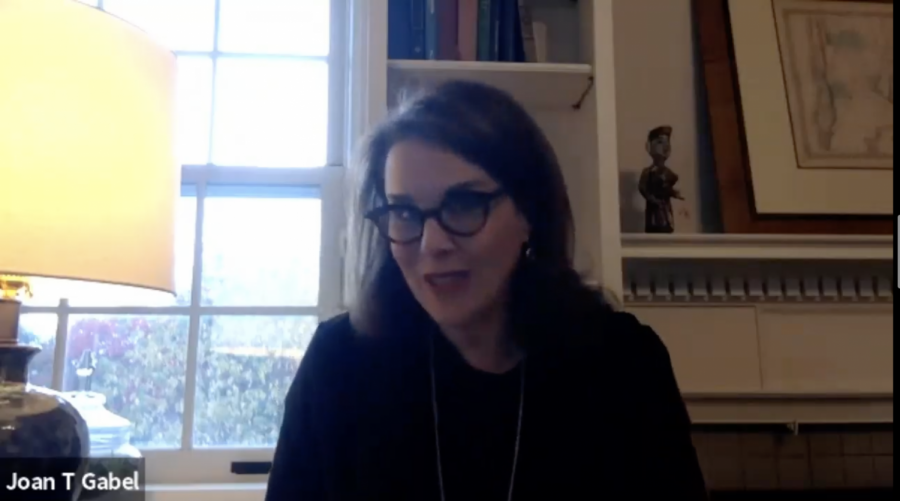University of Minnesota President Joan Gabel and other administrators answered questions from students, faculty and staff in a virtual town hall meeting Tuesday.
The town hall covered topics including campus safety, the pandemic and University finances.
COVID-19 response
One point of discussion was the University’s continued response to the COVID-19 pandemic.
Deputy Director of the University’s Center for Infectious Disease Research and Policy Jill DeBoer addressed the University’s plan to expand testing. Discipline for students, faculty and staff who fail to meet safety guidelines was also discussed.
“We are actively working with state partners and their testing vendor to explore access to self-collected saliva-based testing for our students, staff and faculty. A proposal will be reviewed with our regents at the next meeting,” DeBoer said.
The University expects to use self-collected saliva-based testing in the case of an outbreak on campus, DeBoer added.
Most students have followed the standards set by the Maroon and Gold Sunrise Plan, Gabel said. However, any students who violate the University’s COVID-19 policies will go through the same processes used for other violations outlined in the student conduct code, said Maggie Towle, the interim vice provost for student affairs and dean of students.
“Depending on the violation, sanctions can range in severity from restorative justice to suspension or expulsion,” Towle said.
Safety and policing
University of Minnesota Police Department Chief Matt Clark also attended the meeting to address campus crime and safety.
Although overall crime in the area has dropped, robberies on and around campus have increased this summer and fall, Clark said.
UMPD plans to add patrols to increase police visibility on campus and to ensure they respond to calls quickly. Additionally, detectives have been assigned to criminal investigations on campus, and campus security is focused on ensuring that services like 624-WALK are available as often as possible.
Clark advised students to take safety precautions, including walking in groups at night, being vigilant of surroundings and using transportation or safe walk services on campus.
Finances
The town hall also covered the budget and actions the University is taking to reduce expenditures.
As a result of the hiring freeze, overall University hiring is expected to drop by 41% compared to last year, said Ken Horstman, the interim vice president for Human Resources.
The budget office is working to re-evaluate the University’s financial situation for the current fiscal year, which may change spending plans for specific units going forward based on the office’s recommendations, said Julie Tonneson, the associate vice president of University Finance.
“We will also recommend to the president whether the furlough and temporary pay reduction program should continue past Dec. 20, whether or not to move available resources from one unit to another, how to distribute the available University central reserves and where there might be other financing options,” Tonneson said.


















